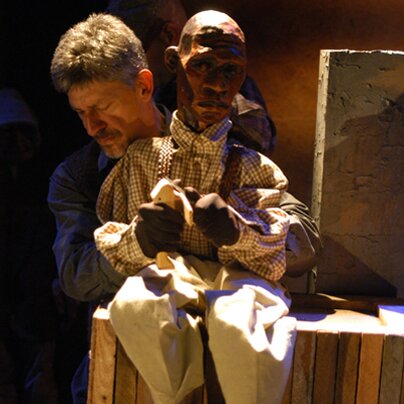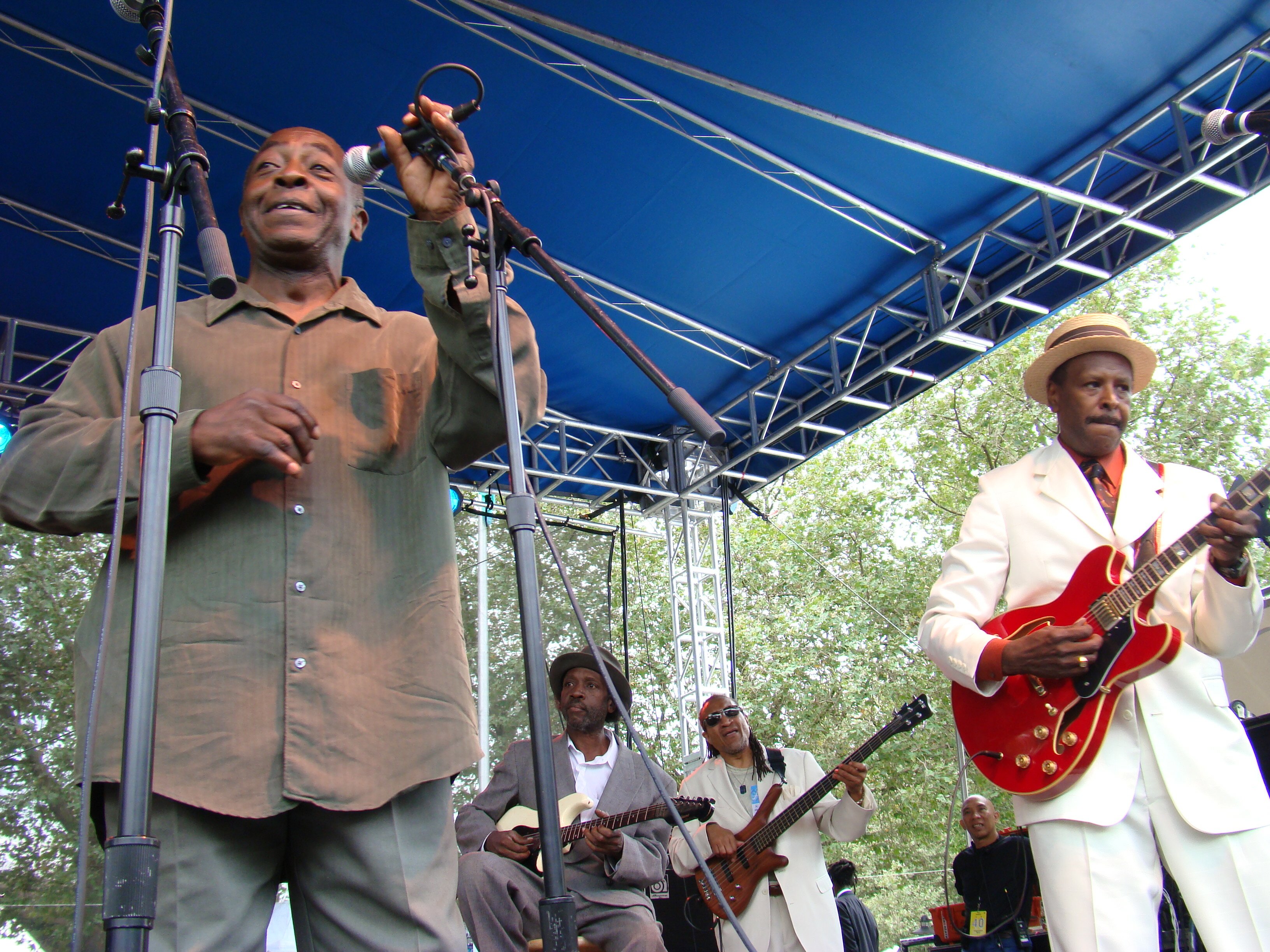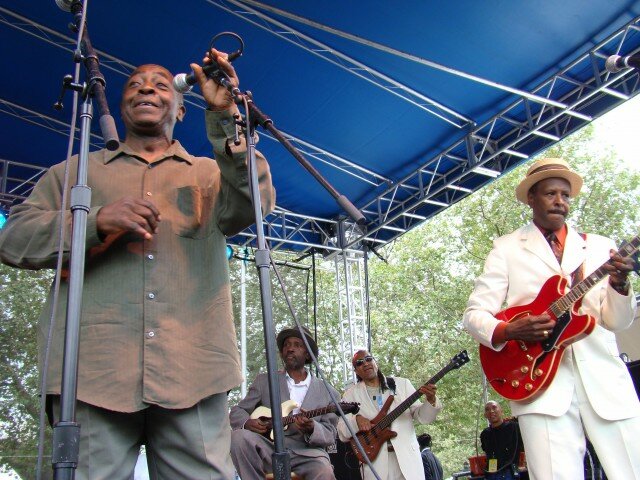
Look in the prop storage of any theatre and you are bound to run across a large collection of old suitcases—for all those stories of strangers’ arrivals or travels begun.
The amount of aging, battered luggage onstage at the Erickson Theatre in Capitol Hill in Strawberry Theatre Workshop’s production of This Land (through October 6; tickets: $15-$30) confounds the imagination. It also suggests a journey. While it’s easy to hop on board this slow freight of a show, the steady rhythm and tepid tempo may lull you to sleep.
Despite its pacing, the run of Strawshop’s Woody Guthrie pageant is prescient in its timeliness. Between these qualities we are left with an important show with interest that is social, political and artistic but in need of help as entertainment. Like the recent national political conventions this piece lives somewhere between theatre and a religious service. It is a pageant to Saint Woody, prophet of the workingman.
This Land is neither fully episodic nor dramatic in its structure. Rather the scenarios of song, anecdote, and essay drift past like blades of a mobile. The first act focuses largely on the Dustbowl story with some detours to the human problems of loneliness, disenfranchisement, and disconnection that persist in good times and bad. The second act deals with a broader range of social concerns including racism and workers’ rights. At nearly two hours the first act is a show unto itself. On the bright side it makes the second act feel somewhat quicker, though it too could have ended about four scenes earlier than it did.
The singing is heartfelt but all over the map in quality ranging from the barely audible to booming. The arrangements bring some pleasurable surprise to tunes that feel familiar at the first listening or from frequent recent airplay in the Mermaid Avenue tunes by Wilco and Billy Bragg. The heavy syncopation of the latter has been softened making them more of a piece with the rest of this soporific soundscape. A few sing-along bits provide interest without stirring any latent revolutionary impulses–such as demands for better entertainment or effective agitprop.
Guthrie’s songs are lyric-focused vectors for images and ideas. They work because the music gives the words a living heartbeat. This is problematic for the puppets, which behave similarly as vectors for the puppeteer’s emotions. Here the puppets are made to serve as emotional vectors for the action of the language. With their movements rooted in stillness we lose focus and our attention is divided evenly between, bottler-vocalist (or musician), puppeteer, and puppet.
Most of the puppets are bunraku style, defined by the hard-bitten, creased faces of Dorothea Lange’s photography. The puppets’ faces and hands have no articulation but the puppeteers squeeze a surprising range of emotion by movement and posture. They also have some nice bits of literal prestidigitation that facilitate dexterity. However, for all that there are some ill-chosen bits of action, like turning pages, that the puppets just can’t do and shouldn’t be asked to.
So why use puppets at all? It turns out that the psychologically distancing lack of articulation makes the puppets effective mouthpieces for Guthrie’s polemics. We can look the puppet in the eye when he speaks of greed and inhumanity where we might shut out a neighbor saying the same words. That semblance of contact makes the message direct but safe.
In that same vein the most successful bits are the most psychologically distanced pieces in which the puppets are at their most artificial. These included a hawker’s box of what appeared to be Jesus figures on springs, Italian style rod marionettes, and a cantastoria simultaneously played out through a pop-up book and projections (the projections are brilliant throughout). Perhaps the most striking puppetry was a set of tree shadowboxes revealed at key points in “Hang Knot” that tied lynching to the power dynamic between fruit growers and pickers.
This Land may be most successful in its shortcomings. It does not provoke but then it’s not a show for the Occupiers. It’s a show for former hippies in the afterglow of plush retirement. It leaves audiences emotionally stirred with propaganda without agitating them to action.
In his program notes director Greg Carter says that, with this show “…we won’t make a play about Woody Guthrie. He’ll make play about us.” In fact–and in keeping with Strawshop’s mission–the most interesting part of this production could be the conversations that can happen around it. Sadly those conversations are likely to begin with the confession that This Land is a bit of a bore.

